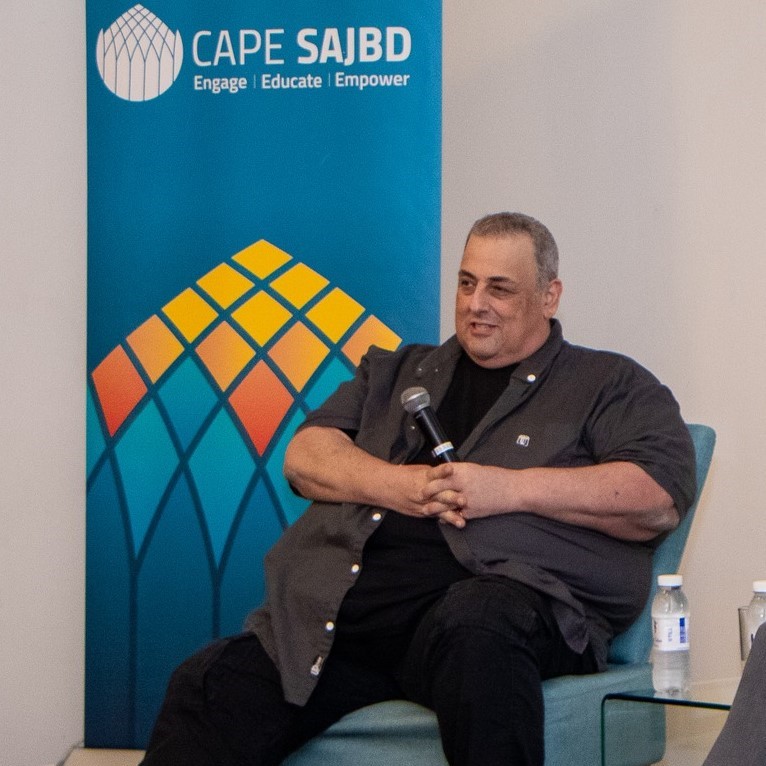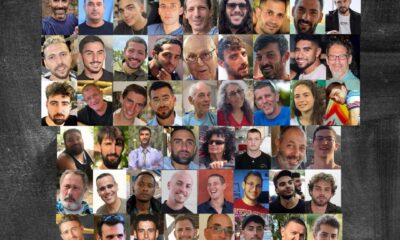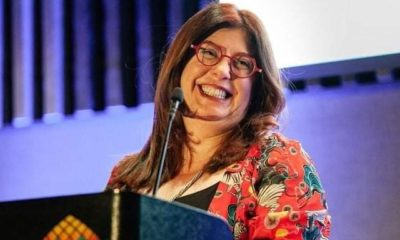
Featured Item

Post 7 October antisemitism – an old, ugly anthem
There was already a spike in antisemitism on 7 October, long before the Israeli military went into Gaza, said international antisemitism expert Dr David Hirsh at the South African Jewish Board of Deputies (SAJBD) Gauteng Conference on 15 September.
“Before there was any Israeli action in Gaza, there was a spike in antisemitism. Not on the 10th or the 15th of October, when Israel was at war, but on 7 October, antisemitism mushroomed,” said Hirsh, the academic director and chief executive of the London Centre for the Study of Contemporary Antisemitism, who was in conversation with Professor Karen Milner at the conference.
“I’m still trying to tease out why and what was it about 7 October that was new and different and that was a watershed moment, because there’s quite a lot of it that wasn’t new,” said Hirsh.
“We aren’t in the situation where everybody said, ‘Well now, we know what you were worried about, now we understand that it was true that Hamas wants to kill and harm Jews’,” said Hirsh, “A lot of people saw what had happened and a lot of people took it seriously. But other people glorified what Hamas did on 7 October, others denied it, others trivialised it, and others victim-blamed it. And some people did all four of those things at the same time.”
SAJBD Gauteng Council Chairperson Harold Jacobs said that even before the Israeli military response got underway, a wave of global antisemitism was unleashed that would only intensify in the weeks and months afterwards. “The sweep of defraudation and judgement of Israel was breathtaking,” said Jacobs. “South Africa seems to be the rare exception in that although we experienced a rise in antisemitic attacks, it seems to have dropped off to the extent that we have returned to pre-7 October levels.”
Milner, the national chairperson of the SAJBD, agreed with Hirsh that 7 October was a watershed moment for antisemitism globally. “It’s reflected in discomfort among Jewish South Africans, which stems largely from the government’s position.
“We live in this bizarre paradox in South Africa,” said Milner. “The elite, the government, has taken this horrific stance. We’re not seeing the kind of deep-seated hate either against our community or against Israel from those in the wider South African community.”
Hirsh said that in Britain, only about 25% of the population hates Israel. “When we talk about the problem, that 25% is much greater in universities, it’s much greater among the young, it’s much greater actually among the educated and the articulate, which makes it unusual.”
He said that when he was working in the sociology department at the University of London in 2005 and the issue of the academic boycott against Israel came up, he became ostracised for his position against a boycott. “In making arguments against the boycott of Israeli universities and academics, I was transformed by the way other people saw me from a sociologist into a Zionist sociologist. That meant I was a racist sociologist, a pro-apartheid sociologist, and a genocidal sociologist.”
Hirsh said his situation wasn’t unique, and what he was doing with the Centre for the Study of Contemporary Antisemitism was to institutionalise the work and try to create a community and infrastructure of scholarship that Jews have largely been excluded from.
Milner asserted that Jewish students on South African university campuses were safe, even though it might seem like it is ground zero for antisemitism.
“It’s on campuses that our students come face to face with all the things that we’re talking about. At the universities where we have high numbers of Jewish students, we’ve been incredibly successful in making our students feel safe,” said Milner. “Our students are a tiny minority. By definition, Jewish students here are white. So, we’re a minority within a minority, and it’s really difficult for Jewish students to stand up if there’s going to be a massive march by the Progressive Youth Alliance, which is made up of the African National Congress Youth League and the Economic Freedom Fighters.”
But Jewish students on campus have been able to stand up for what they believe, even going face to face with Israel haters, and have come out stronger, Milner said.
Similarly, in terms of antisemitic action, South African campuses have been relatively quiet, she said, even though former Department of International Relations and Cooperation Minister Dr Naledi Pandor encouraged students to partake in encampments, “There were about six tents at the University of Cape Town. There were a few at the University of the Witwatersrand. They lasted a couple of days. and they went home,” said Milner.
Milner said the source of the problems in the academic space in South Africa came from a small portion of academia.
“The STEM [science, technology, engineering, and maths] fields are far less problematic than the humanities in this regard, but we’re seeing this small, very committed group of academics managing this simply because they’re so committed and there are more of them than those who are committed on the other side.
“I don’t think academia in South Africa is antisemitic,” Milner said. “Our students are safe, and our academics are safe.”
For Hirsh, anti-Zionism is a form of antisemitism that has existed for a long time. There’s an anti-Zionism which isn’t about Israel and Palestine but is a world view opposed to Jews and Judaism globally, he said.
“It wasn’t about Israel or Palestine. It was about making the Palestinian flag and Hamas into a key symbolic issue that defines who we are and how our politics are different from other people’s politics,” said Hirsh, “It isn’t about foreign policy, it’s about people explaining their own identity by reference to the Jews, and they have been doing that for a very long time.”








